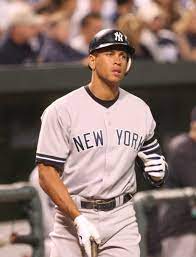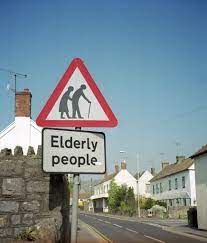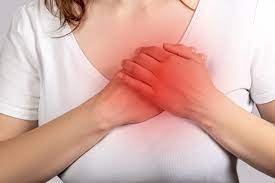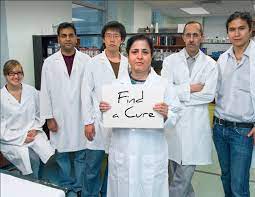Are Performance Enhancing Drugs the Future of Medicine?
For all of the vilification of Alex Rodriguez in the media and public these days, we ignore some of the greater truths that lie behind his use of PEDs such as HGH, HCG, and Testosterone.
Even though, in context, Rodriguez's decision to utilize banned hormone treatments may be ethically wrong, have we stopped considering that Rodriguez may simply be one of many seeking a treatment that will likely be commonplace in just a few decades?
Hormone Therapies such as Human Growth Hormone and Testosterone are being prescribed more frequently every year, and researchers are discovering new benefits for hormone therapy every decade.
discovering new benefits for hormone therapy every decade.
Now, don't get things confused; the use of Hormone Treatments explicitly to bolster the performance of an athlete is not necessarily the best course of action, and there is certainly an increased risk of side effects among these groups, but many athletes, including those that are growing older and those that have experienced injury, may benefit from these treatments in a legitimate way that is being denied them with the current legalistic structure regarding Performance Enhancing Drugs in sports.
Drama Gets in the Way of Thinking About the Realities of Hormone Therapy
All the talk about the ethics of Performance Enhancement and the finger-wagging that takes place whenever we out an athlete gets in the way of recognizing the legitimate benefits of these treatments.
Hundreds of thousands of men across the United States, if not more, have experienced the benefits of legitimate Testosterone Therapy via injections, patches, and pills, and to get their hands on these drugs legally, they had to pass through the proper channels of diagnosis and prescription.
If an athlete actually needs Testosterone, HGH, or HCG for health, who are we to deny him (or her) that privilege?
In the Future, Hormone Treatments May Be Considered Preventative Medicine
Although the science has not yet reached a point where most forms of Hormone Therapy can be recommended for healthy individuals, what about when things inevitably change shortly, and the use of Hormone Treatments for Health and Wellness becomes the norm.
At that point, it seems we would reach a new ethical standard in which these treatments actually were acceptable for use in the professional sports arena. Today, we talk about these people like they are the bad guys, but it's important to note that they also kind of represent a modern science experiment, and these treatments will only grow more sophisticated and sought-after over time.
The future of medicine is in hormone optimization and genetic therapy. Once the science is proven sound, there should be no stigma regarding those who want to improve their health and wellness through pharmaceutical and bio-identical means, even if they compete in an athletic field.
Aging is Intricately Tied to Hormone Deficiency
No matter how young or healthy we are today, without intervention, we will all become increasingly likely to experience a wide variety of age-related medical conditions that deteriorate health and vastly increase mortality, and all of these issues can potentially be mitigated through variations of the medical treatments used by thousands of athletes every year.
 These age-related disorders are varied and numerous, including arthritis, neurodegeneration, Alzheimer's, osteoporosis, atherosclerosis, and diabetes.
These age-related disorders are varied and numerous, including arthritis, neurodegeneration, Alzheimer's, osteoporosis, atherosclerosis, and diabetes.
It would actually pay to take a moment to dwell on Diabetes. Diabetes is one of the first common diseases that was treated by Hormone Therapy, namely via insulin injections which are becoming more sophisticated and simple to administer by the decade. Diabetes used to be a death sentence, but via increasingly effective Hormone Treatments, diabetics are living longer and more normal lives than ever.
Hormones Help Maintain Balance and Equilibrium
Hormones are the underlying intracellular messaging system that controls how our organs interact with one another. As we enter adulthood, these hormones enter a delicate equilibrium that sustains optimal health.
The problem is that the older we get, the more our hormone declines and are imbalanced. Vital hormones like Testosterone and Human Growth Hormone start to diminish, and potentially dangerous catabolic hormones like cortisol and ghrelin start to flourish, causing a cascade of physiological decline that eventually ends with our very own mortality.
Some Factors of Aging May Simply Be Symptoms of Hormone Decline
In fact, many of the symptoms that we assume are the result of aging are actually the result of this hormone decline. Our bodies take longer to heal from injury and become more susceptible to disease. Our cells start to function at a lower capacity and become more prone to error, increasing cancer risk. We start to store fat more readily, and our bodies become less effective at building and retaining muscle mass.
These symptoms not only manifest in the physical but in the psychological and neurological as well. We become more prone to depression and anxiety. Our memory becomes foggy, and our cognitive abilities enter a general decline. The critical year for when this decline begins to occur is the age of thirty.
Hormone Levels Are Fully Optimized in Young Adulthood
Our hormone balance stays at a healthy and optimal level through the teens and twenties and starts to drop at a near-imperceptible rate in the late twenties and early thirties.
Some people experience this decline more quickly and vividly than others due to their lifestyle choices and hereditary factors. Other people don't recognize the changes taking place for years and years. These hormonal changes are so ingrained in the aging process that we don't recognize them as a separate entities.
If Hormone Imbalance is treatable, it seems appropriate to approach the condition as a health disorder rather than an aspect of aging, and if it's a health disorder, it can be treated!
The Importance of 27 in Baseball
In medical science, theories behind hormone decline revolve around the age of thirty, but in baseball, the critical year seems to be twenty-seven.
Every Major League Baseball player hits his peak at a different time, and there are obviously a wide variety of factors at play, but when taken in aggregate, the age of twenty-seven appears to be the age at which the majority of players are most likely to reach their top performance as an athlete.
This isn't just anecdote and hearsay; there are statistical studies that have revealed these results. ESPN has some of the most dedicated statisticians in America working for their corporation, and in one case, one of their stat specialists looked at the best hundred hitters between the years 1998 and 2008. Out of those hundred hitters, the age range at which talent reached its highest levels was between 26 and 32.
This ties in closely with what is considered to be our biological and sexual peak, which is considered 25-30 years old.
It's during this period when our body is receiving optimal levels of all hormones, and our bodies and our chemical messengers are acting in harmony. Because baseball, like any other sport, has a skill and talent element, it makes sense that the athletic peak would lag slightly behind.
Baseball Players Over Thirty Should Have Access to Hormone Treatments
So, put aside your preconceived notions about Performance Enhancing Drugs for a moment. Think of these athletes not using these Bio-Identical Hormones to cheat but to sustain their performance as their physiological health is in a literal state of decline. In this sense, these drugs are intended to help the older player maintain his performance with his younger peers and his earlier performance.
What is really wrong with a therapy that enhances health for the player while also helping him maintain his already high performance into his thirties? Why should he be forced to leave his body in a state of disrepair despite potentially receiving treatment that could help him deal with injury and wear and tear more efficiently and help him remain strong despite the vigorous and often-brutal training regimen that he engages in?
Hormone Therapy Can Help Many Men and Women Live Longer, Healthier Lives
What if it was a life-or-death situation? What if hormone restoration with HCG or Testosterone could correct a deadly medical condition? There are numerous examples where Hormone Restoration accomplishes just that.
Take this anecdotal case: A man in his forties comes into the clinic; he seems totally worn with fatigue and trampled by life. He was not a professional sports star but a successful businessman who loved running and working out his entire life. Things began to change as he approached forty, however...
Testosterone Deficiency Increases the Risk of Many Heart Conditions
He found that his natural inclination toward exercise and physical activity was fading, and he was losing the energy to work out despite his desire to do so. He also found that his body recovered from injury more slowly.
Workouts that used to take a day or two to recover from now took many days, or in some cases, almost two weeks. As a result of his condition, he  underwent hormone evaluation, and it was found that he had abnormally high levels of an inflammatory protein known as cardiac c-Reactive Protein, a condition which indicated that he was at an elevated risk of heart conditions such as stroke and heart attack.
underwent hormone evaluation, and it was found that he had abnormally high levels of an inflammatory protein known as cardiac c-Reactive Protein, a condition which indicated that he was at an elevated risk of heart conditions such as stroke and heart attack.
HCG Therapy Changed This Man's Life
And this was just a start. Upon further evaluation, it was found that he also suffered from gout, diabetes, and hypertension and had a genetic history of cardiovascular disease. To balance his inflammation, he was put on HCG injections to bolster his ability to produce endogenous Testosterone.
In fact, HCG, when combined with a new diet and sleep guidelines, led him back to good health, as he experienced when he was in his teens and twenties. In the face of all these conditions, simply rebalancing his Testosterone Levels with HCG was sufficient to put his life back on track.
What If Aaron Rodriguez Needed Hormone Therapy?
Now, after discussing this individual case, let's return to the case of Aaron Rodriguez. Rodriguez's case was different than the above because he engaged in Performance Enhancing Drug use during the period when his hormone levels would have been at their highest.
For this reason, unless an express condition led to his need for these drugs, most ethical physicians would have denied him at first glance.
However, the case is much less clear regarding the most recent allegations. He has been accused of using Bio-Identical Human Growth Hormone Injections and Testosterone Therapy from 2011-2013. In this case, he was in his mid-thirties and could very well have been a legitimate candidate for Hormone Balancing and Optimization.
Of course, there is no way to know what his lab tests showed at this time, but there is a strong chance that he was experiencing at least some level of hormone deficiency, even if it didn't meet the threshold for treatment.
Why Deny Athletes the Opportunity to Be Healthy?
In this case, he may be interested in Hormone Treatment because of its potential to help him play on the field more effectively, but why should we deny him that if the results also lead to better health? Perhaps he chose to institute Hormone Replacement with HGH and Testosterone because he was discovered to have a genetic risk of diabetes or heart disease.
He could also be experiencing an inflammatory medical condition like the man in the previous example. There are several health risks, including cardiovascular risks, that can be effectively treated or alleviated by the very hormone treatments that could potentially amplify his game. A litany of reasons, completely outside of the field of athletics, could have encouraged him to choose HRT Therapy despite the risks.
Of course, there's no way for us to know any of this, but it's essential to recognize that Hormone Deficiency is an actual medical condition that can be treated, and we should not vilify it even when athletes use these Hormone Treatments to extend their glory years.
Focusing on the Stigma of PED Use Does a Disservice to Needy Patients
If Aaron Rodriguez broke the rules of his contract, of course, he should be punished according to the rules he agreed to, but it's still essential to think about the issue from a disconnected perspective to consider whether perhaps some of these rules should be made laxer, especially for older players or injured players that could sincerely and legitimately benefit from these medical treatments that are now considered Performance Enhancing Drugs.
By accentuating the rule-breaking and illicit use of these treatments rather than the potentially beneficial uses, we may be leading patients with a real, perhaps even dire, need for treatment away from seeing a hormone specialist.
By dwelling on the abuse and misuse of these products, we are doing a disservice to real people across the United States. They consider these perfectly natural Bio-Identical Hormone Therapy Treatments to be avoided when they are perfectly natural and are becoming understood with greater and greater clarity by the year.
Perhaps it is related to our fear of aging. We overlook these treatments because they are so intricately related to what we perceive as aging. We don't want to get older, but we are nervous about talking to our doctors about ways to enhance our longevity and improve our health.
 The problem with the whole story is that it doesn't attract eyes in the same way. People are interested in athletes that use PEDs because they are obsessed with off-the-field drama, not because these athletes could potentially be using a treatment that could add years to another man's life.
The problem with the whole story is that it doesn't attract eyes in the same way. People are interested in athletes that use PEDs because they are obsessed with off-the-field drama, not because these athletes could potentially be using a treatment that could add years to another man's life.
This new field of Genetic and HRT Therapy can be considered under the Precision and Personalized Medicine umbrella.
Medicine that considers the whole person seeks to treat existing ailments and prevent future illnesses concerning a patient's genetic and personal biases.
Shortly, Medical Science Will Become Increasingly Focused on Increasing Life Quality
Americans live longer than they ever have, but they often live their later lives in poor health. The next natural stage of Medical Science will be how to help people live the latter years of life as healthy as possible, not simply treating significant illnesses as they appear.
Hormones are vital to maintaining this health and wellness as we grow older. To maintain our brains, hearts, bones, joints, and muscles, it will be necessary to supplement the waning hormone supply of the body to prevent the atrophy and degradation of the body that leads to what today seems like inevitable frailty.
There is debate among reporters and commentators about how Performance Enhancing Drugs affect the purity of sport, but honestly, we need to do what's best for the players as people and not be so concerned with their performance as related to those that came before.
Until we consider the debate from that perspective, we will continue to mischaracterize Hormone Optimization and how it could change the nature of the very world we live in. Our misplaced judgments today could set back medicine by years and even decades if we don't take the time to be thoughtful about Hormone Restoration.
- Short Children Can Gain Inches With Growth Hormone [Last Updated On: January 13th, 2024] [Originally Added On: December 24th, 2020]
- How Hgh Influences Height In Children [Last Updated On: July 6th, 2023] [Originally Added On: December 25th, 2020]
- Human Growth Hormone and Turner Syndrome [Last Updated On: June 7th, 2023] [Originally Added On: May 25th, 2023]
Word Count: 2504







